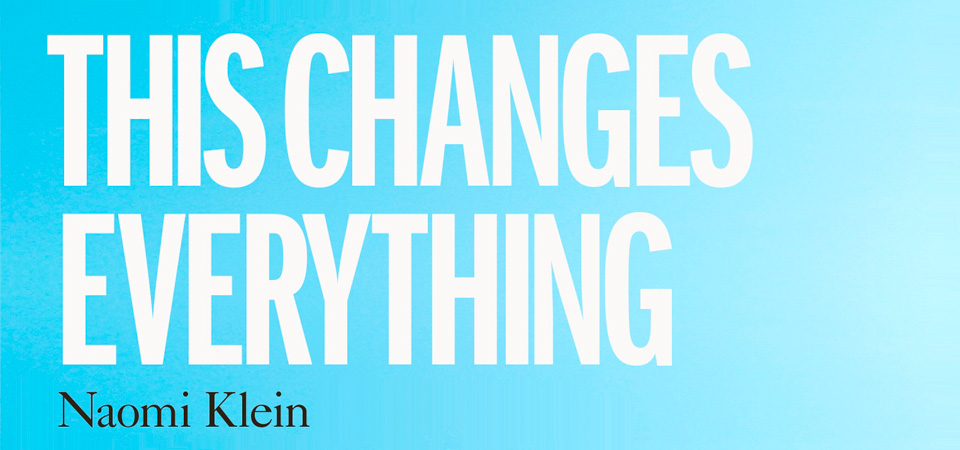- Home |
- Search Results |
- This Changes Everything by Naomi Klein

Recent years have been filled with moments when societies suddenly decide they have had enough, defying all experts and forecasters—from the Arab Spring (tragedies, betrayals, and all), to Europe's 'squares movement' that saw city centres taken over by demonstrators for months, to Occupy Wall Street, to the student movements of Chile and Quebec. The Mexican journalist Luis Hernández Navarro describes those rare political moments that seem to melt cynicism on contact as the 'effervescence of rebellion.'
What is most striking about these upwellings, when societies become consumed with the demand for transformational change, is that they so often come as a surprise—most of all to the movements' own organisers.
I've heard the story many times: 'One day it was just me and my friends dreaming up impossible schemes, the next day the entire country seemed to be out in the plaza alongside us.' And the real surprise, for all involved, is that we are so much more than we have been told we are — that we long for more and in that longing have more company than we ever imagined.
No one knows when the next such effervescent moment will open, or whether it will be precipitated by an economic crisis, another natural disaster, or some kind of political scandal. We do know that a warming world will, sadly, provide no shortage of potential sparks.
Sivan Kartha, senior scientist at the Stockholm Environment Institute, puts it like this: 'What's politically realistic today may have very little to do with what's politically realistic after another few Hurricane Katrinas and another few Superstorm Sandys and another few Typhoon Bophas hit us.' It's true: the world tends to look a little different when the objects we have worked our whole lives to accumulate are suddenly floating down the street, or smashed to pieces, turned to garbage.
The world also doesn't look much like it did in the late 1980s. Climate change, as we have seen, landed on the public agenda at the peak of free market, end-of-history triumphalism, which was very bad timing indeed.
Its do-or-die moment, however, comes to us at a very different historical juncture. Many of the barriers that paralysed a serious response to the crisis are today significantly eroded. Free market ideology has been discredited by decades of deepening inequality and corruption, stripping it of much of its persuasive power (if not yet its political and economic power). And the various forms of magical thinking that have diverted precious energy—from blind faith in technological miracles to the worship of benevolent billionaires—are also fast losing their grip.
It is slowly dawning on a great many of us that no one is going to step in and fix this crisis; that if change is to take place it will only be because leadership bubbled up from below.
We are also significantly less isolated than many of us were even a decade ago: the new structures built in the rubble of neoliberalism—everything from social media to worker co-ops to farmer's markets to neighbourhood sharing banks — have helped us to find community despite the fragmentation of postmodern life.
Indeed, thanks in particular to social media, a great many of us are continually engaged in a cacophonous global conversation that, however maddening it is at times, is unprecedented in its reach and power.
Given these factors, there is little doubt that another crisis will see us in the streets and squares once again, taking us all by surprise. The real question is what progressive forces will make of that moment, the power and confidence with which it will be seized. Because these moments when the impossible seems suddenly possible are excruciatingly rare and precious.
That means more must be made of them. The next time one arises, it must be harnessed not only to denounce the world as it is, and build fleeting pockets of liberated space. It must be the catalyst to actually build the world that will keep us all safe. The stakes are simply too high, and time too short, to settle for anything less.